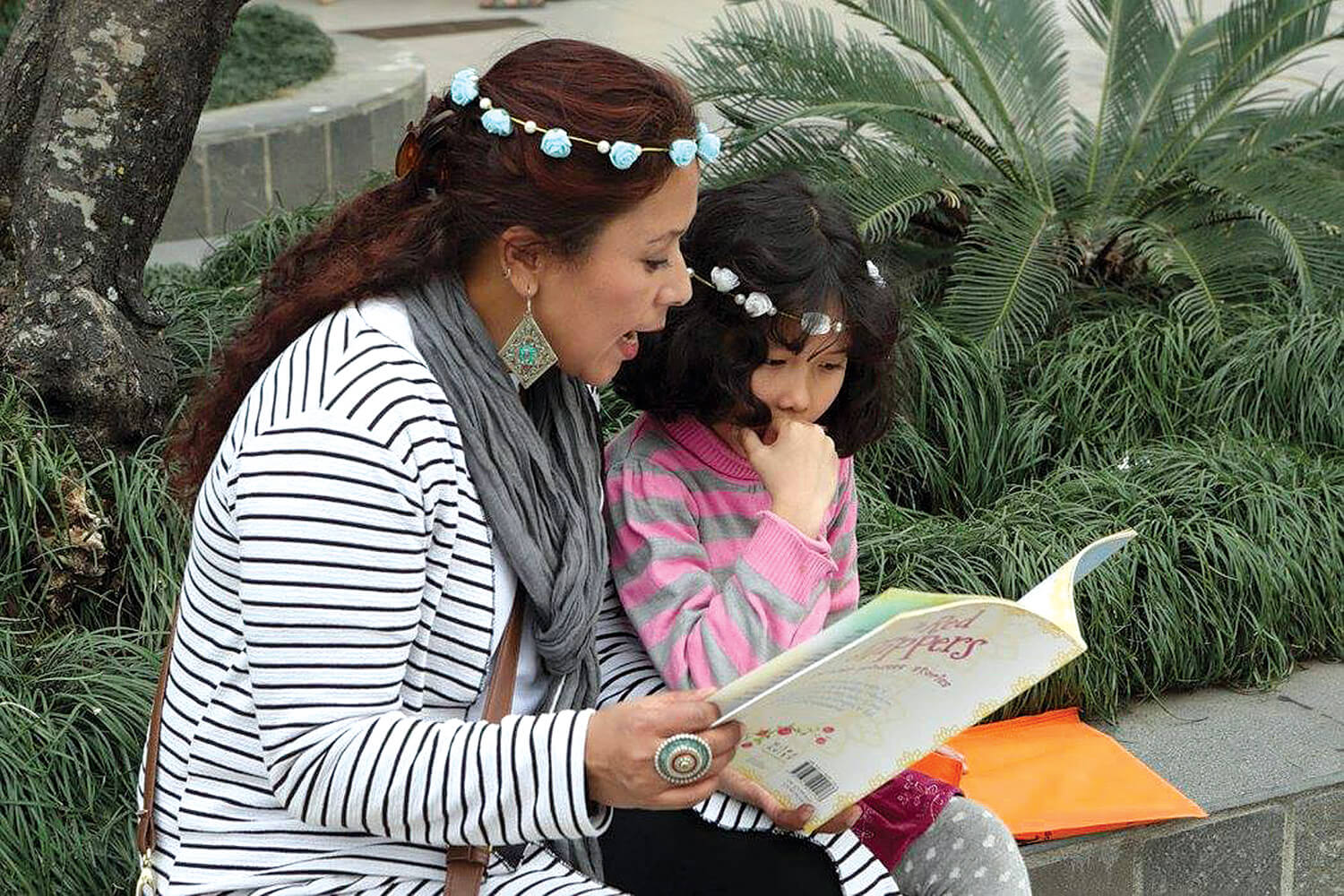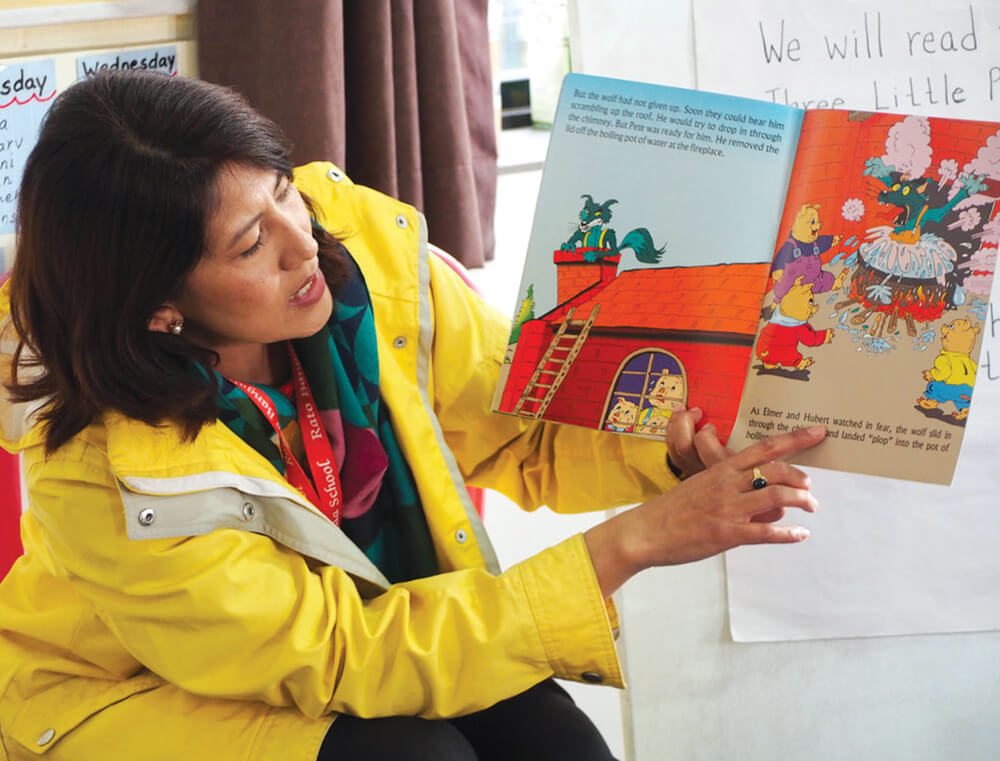The power of reading aloud

Instilling a habit of reading in children supplements what they learn in school, but reading aloud to children by parents, teachers or even other children, is a way for them and adults to bond and to share experiences of wonder, joy, and discovery.
When children are able to turn the pages of a book but not yet to read words, they often tell stories from memory or make them up as they go along. These are all essential steps in the inculcation of a reading habit. Following words on the page as a parent reads aloud helps children to understand the connectedness of the spoken and written word.
Reading aloud to and with children has benefits far beyond the development of language and literacy skills. A study in the journal Pediatrics found that shared reading and play between parents and children has long-lasting impact on the children’s social and emotional development, helping to curb hyperactivity, aggression, and difficulty with attention.
READ ALSO: This author is an alien, Sanghamitra Subba
There is in fact a performance gap in school between children who are readers and those who are not. Children who have books in their lives from before formal schooling have better vocabulary, comprehension, and communication skills, and these set them up for success in school, says early childhood development expert Meenakshi Dahal.
“Parents who do not speak to their children in proper sentences hinder their child’s verbal fluency, communication skills and even reading skills,” says Dahal. “The lack of proper communication hinders a child’s reading ability and the lack of reading ability hinders the development of communication skills.”
A recent campaign by children’s publisher Rato Bangala Kitab (#ReadAloudwithRBK) encourages parents to post videos on social media platforms reading aloud to children. Says Monita Gurung of RBK: “We wanted reading to be a part of the family’s daily life and reading aloud is an easy and fun way to do that. The new generation of parents is aware of the benefits of reading to children, and the culture of reading is picking up.”
Read also: Children’s literature, Stéphane Huët
Pedagogues say there is a clear correlation between children’s reading habits and their performance in school. And the benefits to learning go beyond that. Reading helps children develop a love for literature, which results in the child becoming a reader.

“A good reader becomes a good writer and a person who can think deeply and see different perspectives. The child develops empathy and a stronger understanding of the world and becomes a life-long learner,” says Milan Dixit, principal of Rato Bangala School.
Children’s publishers have been publishing more books in Nepali so that there is more available for children and parents to read. Illustrated children’s books like Didiko Scooty by Diwakar Chhetri have been very popular, and RBK is releasing its first colourful board books for very small children that can
take rough handling at the Bal Sahitya Mahotsav on Saturday.
Read also: Read and let read, Anil Chitrakar
Read More Nepal’s Kartikeya Ghimire says reading aloud to children not only arouses interest in books and language, but is an interactive experience. He adds: “Through reading, parents can also impart values like compassion and empathy.”
As popular children’s author Bruce Coville says, (see box, and overleaf) there are no negatives to reading aloud to children. There are only positives.
Why read to children?
Kids, especially around the ages of three and four, have a sponge-brain for language. They will take as much as you can give them and if you starve them of reading aloud, you starve them of words that they need for the future. The way we impact the world as adults is mostly through words, whether spoken or written. If we do not have a mastery of language it will be much harder for us to convince and persuade and thereby change the world around us.
So you need to pour words into a child’s brain. Rich and creamy language. It needs to start early on. They need to hear their parent’s voices. It is also a great bonding experience for the parent and child, and sometimes a child will want to read the same book again and again and again. The fate of anybody who writes a well-written picture book is that parents will have read it 75 times a week.
As children grow older they are hungry for your time and attention. Reading to them is a great way to give them that, and it gives them confidence in school with their own language. There are no negatives about reading aloud to children, only positives.
And stories teach ethics, morals, behaviour, and decision-making. Reading aloud shows children that you also value reading and value literature. If a child never sees you reading then they will never take it up themselves or see the importance of it.
Bruce Coville
